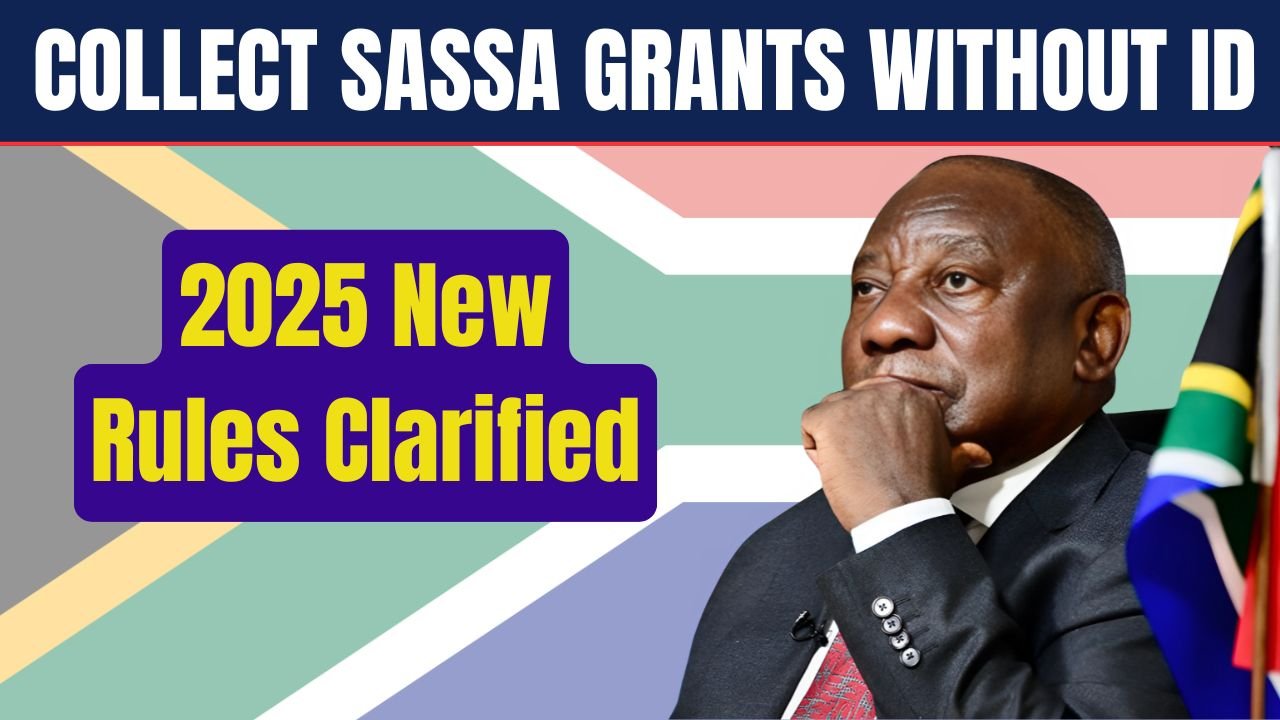With millions of South Africans relying on social grants for their daily needs, access to these funds remains a critical issue. However, many vulnerable citizens still struggle to obtain or replace their South African Identity Documents (IDs), raising a vital question in 2025: can you collect your SASSA grant without an ID?
The South African Social Security Agency (SASSA) has now clarified its position regarding identity verification and documentation required to receive social grants. The updated guidelines are designed to protect the integrity of the system while also being more inclusive to those who face barriers in accessing Home Affairs services.
The Role of Identification in SASSA Grant Payments
Traditionally, a valid green barcoded ID or smart ID card has been mandatory when applying for and collecting a SASSA grant. This standard requirement ensures that only eligible individuals access funds and helps prevent duplication, fraud, or payments to deceased persons.
However, in recognition of the challenges faced by undocumented citizens, especially in rural or underserved areas, SASSA has introduced some flexibility under special conditions for 2025. This flexibility is primarily targeted at grant renewals, child support situations, and disaster-relief payments.
SASSA’s New Rules for 2025: When You Can Be Paid Without an ID
According to the 2025 update from SASSA, there are exceptional situations where a person without a valid ID may still receive a grant payment or be considered for temporary approval.
These cases require alternative documentation, provisional registration, or involvement from social workers. The system now allows for temporary verification methods, pending the submission of a valid ID within a specified period.
For example, in situations of displacement, disasters, or stolen IDs, a sworn affidavit, police report, and supporting documents may be accepted. In child grant cases, birth certificates, affidavits from school officials, or clinic cards may serve as substitutes. However, this is allowed only after thorough background checks and verification by SASSA officials.
Table: SASSA ID Requirements in 2025 – When Exceptions Apply
| Scenario | Accepted Without ID? | Alternative Documentation Required |
|---|---|---|
| First-time grant application | No | Full ID required for initial registration |
| Lost/stolen ID with police report | Yes (temporarily) | Affidavit + police case number + other proof |
| Child Support Grant for minor | Yes (conditionally) | Birth certificate + school/clinic documents |
| Disaster/displacement situation | Yes (case-by-case) | Proof from local authorities or shelters |
| Elderly with no ID, unable to travel | Yes (with assistance) | Social worker verification + biometric capture |
| SRD R350 Grant | No | ID still mandatory for verification |
How to Proceed If You Don’t Have an ID
If you do not have a valid ID but need access to a SASSA grant, the first step is to visit your nearest SASSA office and explain your situation. SASSA officials will guide you through the affidavit and supporting documentation process. In some areas, mobile units or social workers may be deployed to assist applicants who are homebound or elderly.
You will still be required to begin the process of obtaining a replacement ID from the Department of Home Affairs, and a grace period will typically be granted. If you fail to submit your ID within the stipulated time, payments may be suspended until proper documents are provided.
Why SASSA Is Making These Changes
These changes reflect SASSA’s efforts to be more accessible to marginalized populations without compromising on fraud control. With many undocumented individuals facing delays at Home Affairs or lacking the means to travel, the agency has responded with a more compassionate but still cautious approach.
By working closely with social workers, schools, clinics, and community authorities, SASSA aims to close the gap for those who might otherwise be excluded from much-needed social support.
Final Thoughts for Beneficiaries in 2025
Having a valid South African ID remains the most reliable and permanent way to access SASSA services. However, the 2025 rule changes now provide some breathing room for those in extraordinary circumstances. Beneficiaries are encouraged to begin the ID application or replacement process as early as possible, even while using alternative verification methods temporarily.

